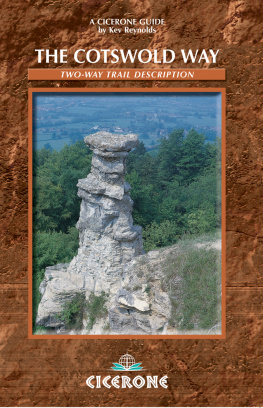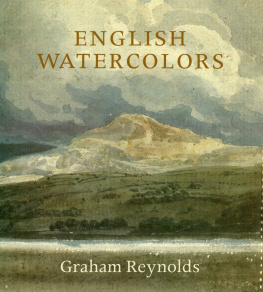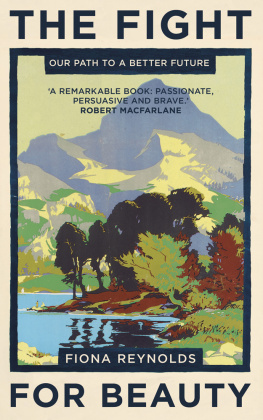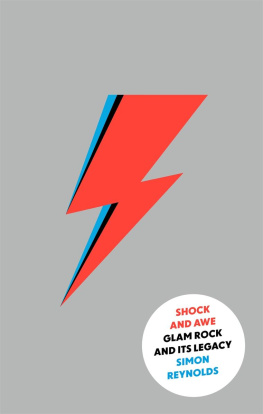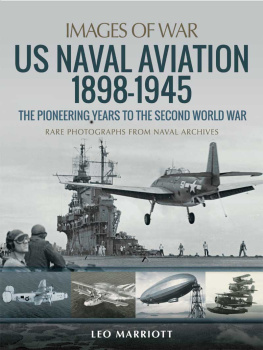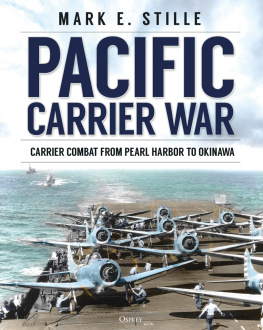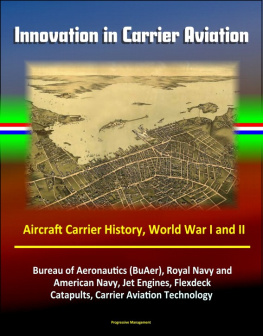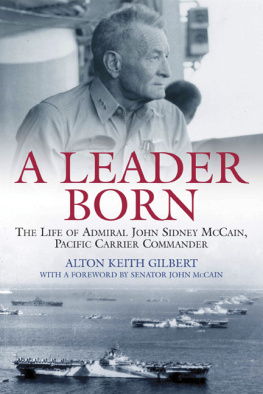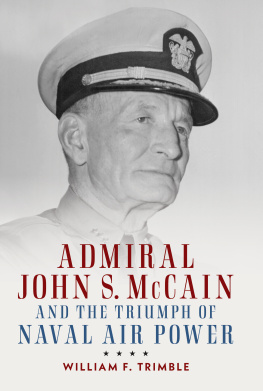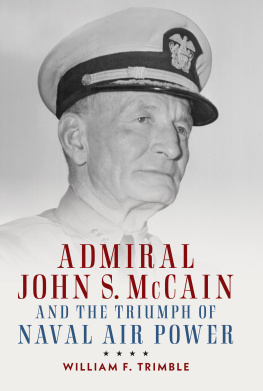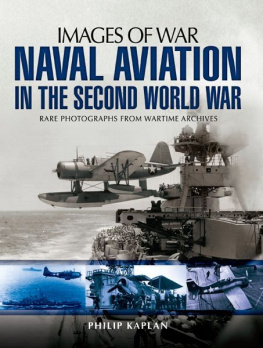ON THE
WARPATH
IN THE
PACIFIC
ON THE
WARPATH
IN THE
PACIFIC

ADMIRAL JOCKO CLARK
AND THE FAST CARRIERS
CLARK G. REYNOLDS
Naval Institute Press
Annapolis, Maryland
Naval Institute Press
291 Wood Road
Annapolis, MD 21402
2005 by Clark G. Reynolds
All rights reserved. No part of this book may be reproduced or utilized in any form or by any means, electronic or mechanical, including photocopying and recording, or by any information storage and retrieval system, without permission in writing from the publisher.
Library of Congress Cataloging-in-Publication Data
Reynolds, Clark G.
On the warpath in the Pacific : Admiral Jocko Clark and the fast carriers / Clark G. Reynolds.
p. cm.
Includes bibliographical references and index.
ISBN 978-1-61251-361-4
1. Clark, Joseph James, 18931971. 2. AdmiralsUnited StatesBiography. 3. United States. NavyBiography. 4. World War, 19391945Naval operations, American. 5. World War, 19391945Pacific Area. 6. Aircraft carriersPacific AreaHistory20th century. 7. World War, 19391945Aerial operations. 8. United States. NavyAviationHistory20th century. I. Title.
E746.C55R49 2005
940.545973092dc22
2005010431
Unless otherwise noted, all photographs are official U.S. Navy photos or snapshots provided by the Clark family.
Cherokee Indian basket design courtesy of the National Museum of the American Indian, Washington, D.C.
12 11 10 09 08 07 06 05 9 8 7 6 5 4 3 2
First printing
CONTENTS
J OSEPH JAMES JOCKO CLARK WAS THE FIRST PERSON OF AMERICAN Indian descent to attain the four-star rank of full admiral in the U.S. Navy. His Cherokee roots helped shape his character as one of the most respected, even beloved, fighting skippers and admirals in the Pacific war against Japan.
My first memory of him was his toiling away in a large backyard vegetable garden in San Diego, in much the same manner as he had done as a boy in the Indian Territory (later Oklahoma). The year was 1951, and I was visiting Clarks home with my uncle Bob. The Korean War raged, and Clark, as rear admiral, commanded the Navys air bases along the West Coast. At 57 he looked every bit as much the Indian warrior as his ancestors. I was all of 11 years old. (By happenstance, my first name, Clark, was my mothers maiden name, and I also am part American Indian, likely Miami Nation, three generations back.)
My Uncle BobFrank Robert Reynoldshad been recalled from teaching high school in Los Angeles to active duty, resuming his World War II role as the admirals personal aide and flag lieutenant. They had been comrades-in-arms in the Pacific on board Jockos ship, the second aircraft carrier to be named Yorktown (CV-10)the famous Fighting Ladyand on his flagship, the second Hornet (CV-12), of Fast Carrier Task Group 58.1. Now, the admiral was earmarked for command of the Seventh Fleet fighting the Communist North Koreans and Chinese.
All of this I learned much later, of course, but our meeting helped ignite my fascination with history, naval history in particular. The evening after our encounter in the garden, Admiral Clark hosted a dinner for my family at San Diegos U. S. Grant Hotel. My only memory of this occasion was the waiter taking our orders: when he offered rice as a side-dish choice, both the admiral and my uncle started laughing and cursing it. They had grown quite sick of eating rice in the war-torn Pacific!
From that time on I paid close attention to my uncles war stories. An exuberant, happy-go-lucky guy who loved peopleand knew how to handle them, Uncle Bob tended to exaggerate when he reminisced. I learned to discern the essence of his stories when, as a teenager, I read everything published about the Navy in the Pacific war (which really wasnt much in the 1950s). Bob and I even spent an overnight cruise together out of Long Beach, California, on board the Yorktown in the spring of 1957 as part of a Navy public relations campaign for high school journalists.
Not coincidentally, many years later (from 1978 to 1987), I was employed as the first historian-curator of that very ship after its arrival in Charleston Harbor, South Carolina. There it became the centerpiece of the Patriots Point Naval and Maritime Museum, where Jockos memory is enshrined.
During my undergraduate years at the University of California at Santa Barbara (195761) my interest in the Pacific war and history in general deepened to the point where I decided to become a historian. I even planned to write my doctoral dissertation on the wartime Fast Carrier Task Force to which Jocko Clark and the new Yorktown had belonged. The revised and expanded dissertation was first published in 1968 as The Fast Carriers: The Forging of an Air Navy and has remained in print almost continuously ever since.
One day in 1959, however, my uncle told me that the admiral was trying to write his autobiography and that he needed a professional writer or historian as his collaborator (ghostwriter). Impetuously, I (at age 19, in between my sophomore and junior years in college) suggested that I be that person. Whereupon Uncle Bob telephoned his old bosswith whom he had had a recent falling out over a joint business ventureand told him of my interest. Then Uncle Bob handed me the phone.
Admiral Clark was polite, considering my relative youth and inexperience, and I informed him that I could not help him until I finished graduate schoolwhich I had not yet even started. My parents even let me fly to New York that summer to discuss it with him as his houseguest. We left the possibility of future collaboration open, although I drew on his knowledge when I wrote my carrier study. I repeated my promise in person and in letters during my graduate years at Duke University (196164), and as soon as I received my PhD, the admiral and I got to work on his memoir. We signed a contract with the David McKay publishing house to produce it as a trade book.
Jockoas I addressed him, a familiarity he initially only toleratedturned out to have almost total recall of the important events of his life. He repeated them often to me, answering my questions with unfailing consistency. (The selected portions of his interviews for the Naval Photographic Centeron the CD that accompanies this bookare samples of his keen memory.) The admiral proved to be gruff, even difficult, but also patient with me. We made steady progress, thanks also to the sage counsel of McKays executive editor, Howard S. Cady. The result was Carrier Admiral, published at the end of 1967.
Clarks transcribed reminiscences in his oral history interviews at Columbia University during 1962 provided the core of that book. Our conversations and correspondence were supplemented by official Navy records, interviews with many of his former shipmates, and wartime and postwar publications. No family members were consulted, and his personal life was not addressed (although he told me plenty about it), inasmuch as the project took place in the midst of an unhappy marital situation.
Worse, the early chapters were stricken from the final draft by the publisher: Jockos Cherokee heritage, boyhood antics, Naval Academy high jinks, World War I convoy duty, and postwar excitement in occupied Germany; the conflict between Turkey and Greece; and the Russian civil war. The head of the publishing company preferred to focus on Clarks distinguished career in naval aviation, which began in 1924.
These omissions are part of the reason for the present work. J. J. Clark deserves a balanced treatment of his early life and road to success as one of the key figures in the development of American naval aviation, in the war in the Pacific, and in naval operations in the Korean conflict. I never doubted his importance during the course of our collaboration, nor have I in the years since.
Next page

